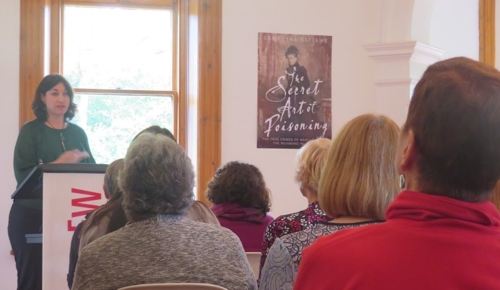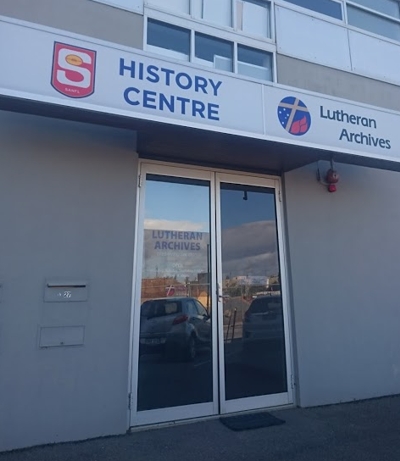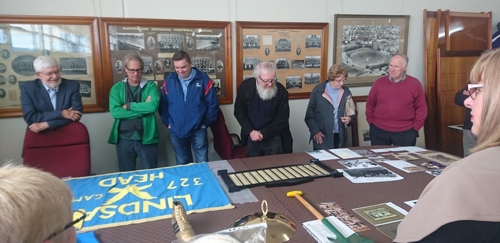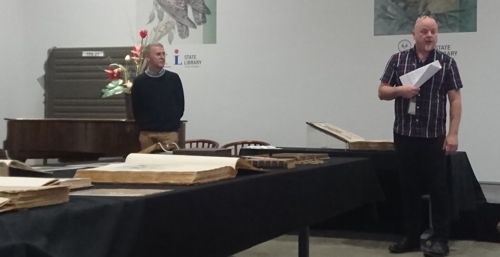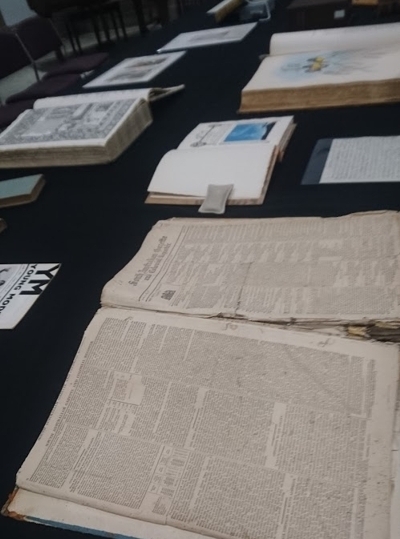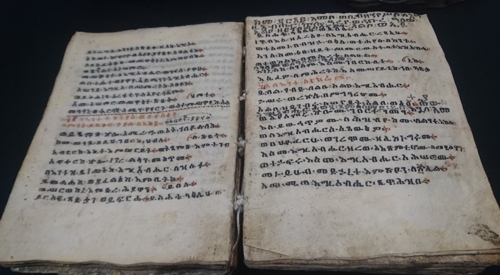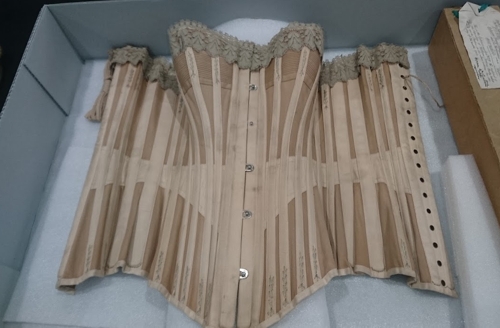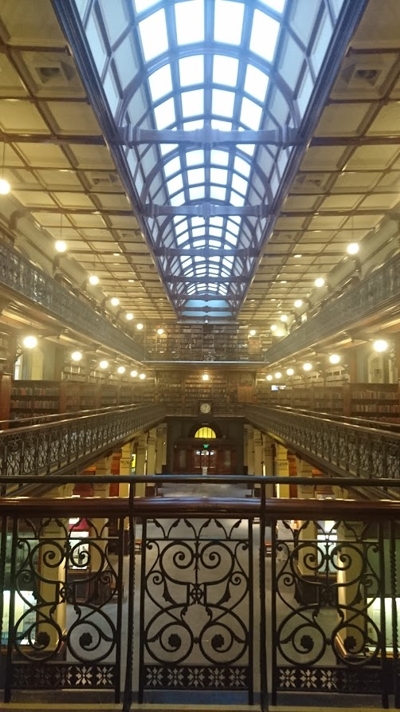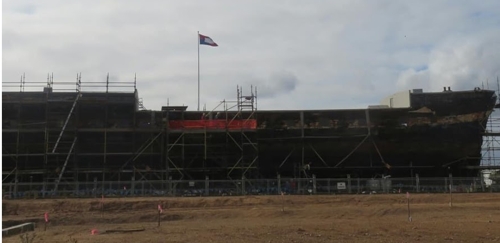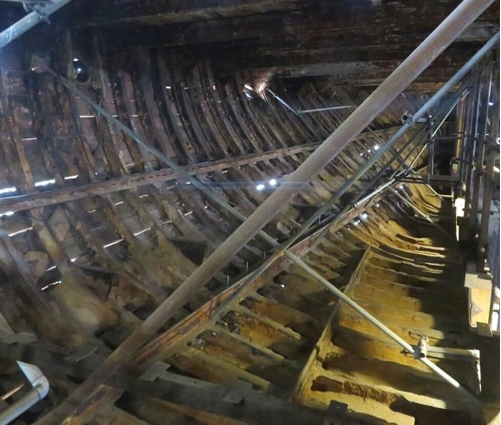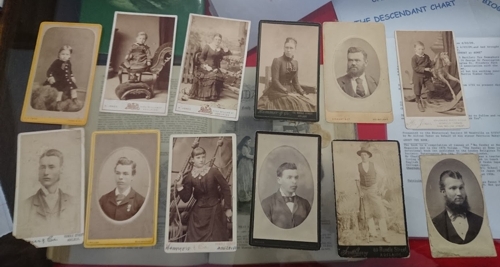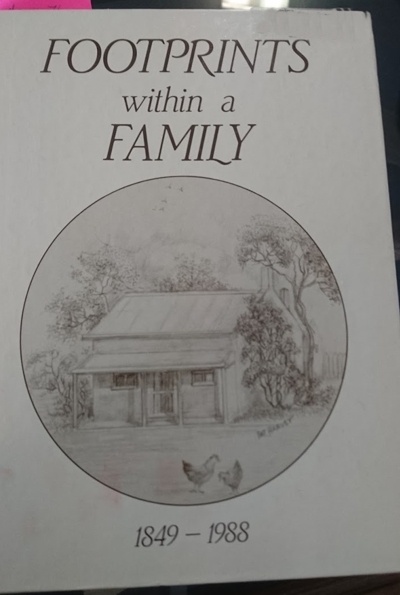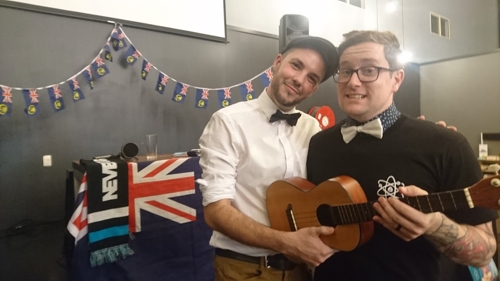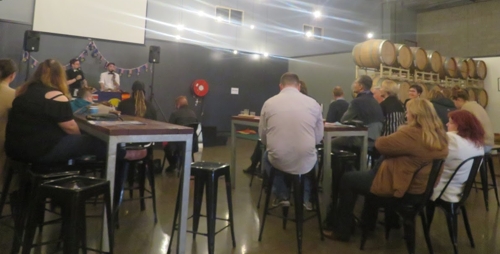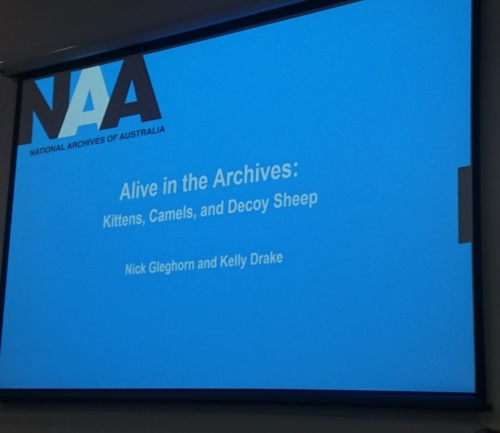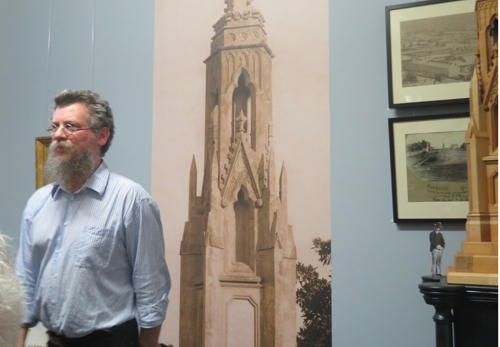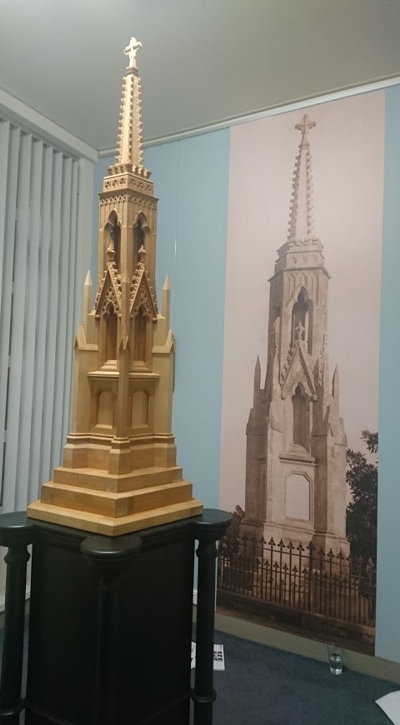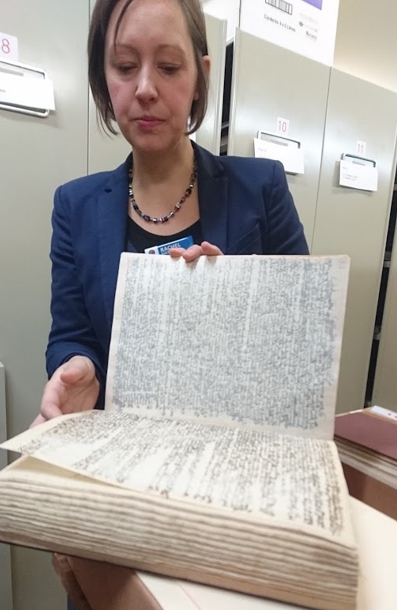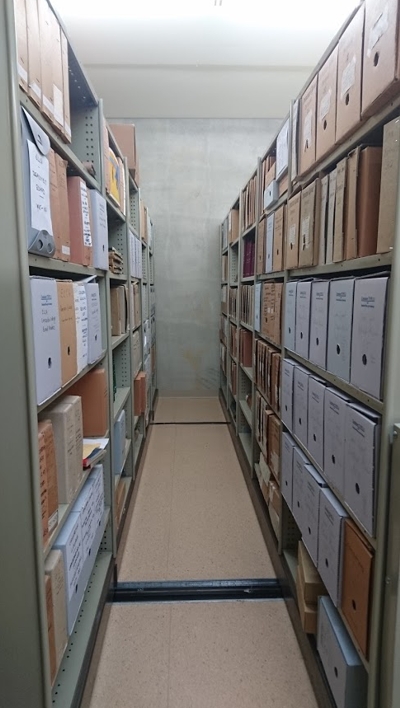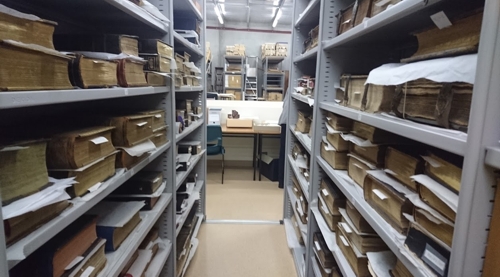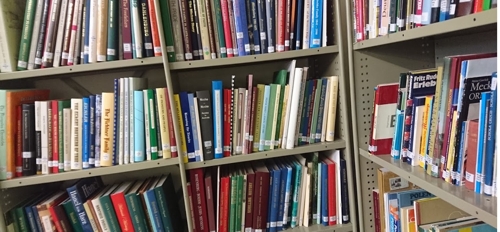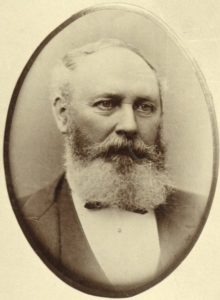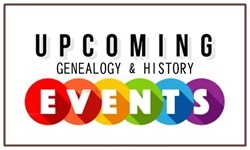Are You Listening? 25 Australian History and Genealogy Podcasts
Hands up how many of you listen to podcasts? Hmm, not enough of you. Before I get into that, let me start right at the very beginning by giving you the definition of podcast.
In simple terms, a podcast is a digital medium consisting of audio episodes that relate to a specific theme. The hosts of a podcast are referred to as “podcasters.”
So in essence it’s an audio recording that you can listen to on your computer, iPad, or phone. There are literally hundreds of thousands of podcasts available to listen to, on just about any topic that you can think of – just browse Audible to get an idea. They can be fun and entertaining, they can be horrifying, or they can be educational. Podcasts are great to listen to while you’re travelling.
Anyway today I just want to highlight a few Australian history and genealogy-related ones for you. Please note it takes a LOT of work and dedication to create a podcast, and as you’ll see some of those listed below are not currently active, but I’ve included them as you can still listen to the past episodes.
—-
AdeLOL – Adelaide & SA’s Hilarious History Podcast
https://adelol.podbean.com/
Stories of South Australia and Adelaide’s unique, and often hilarious, past.
Australian Ancestry Podcast
https://australianancestrypodcast.podbean.com/
The Australian Ancestry Podcast helps you make the most of your uniquely Australian family history research by providing insights into how to perform your research in Australia, overview of historical trends in Australian migration & settlement and interviews with leading Australian researchers.
Aussie History Podcast
https://player.fm/series/aussie-history-podcast
The Aussie History Podcast, (also known as the Aussie Waves Podcast) tells Australian history though the lens of all those peoples who have made the journey from other lands to call Australia home.
Australian Histories Podcast
https://www.australianhistoriespodcast.com.au/
The Australian Histories Podcast aims to take a fresh look at some of the brilliant stories from Australia’s past. Jenny is the host, and through her podcasts, she hopes to share with you an overview of various interesting episodes in Australian History, as well as some humour, interest and perhaps even a new perspective from those in your high school history textbooks!
Bookmark This Podcast
https://www.nla.gov.au/stories/podcast#
Bookmark This is a podcast from the National Library of Australia. Season one, Off Stage, explores the vibrant characters, milestone moments and cultural treasures found in the exhibition On Stage: Spotlight on Our Performing Arts. It delves into the untold stories of Australia theatre, dance, music and film. Season two, Bold Types is hosted by political reporter and author Amy Remekis. and it celebrates the pioneering women who took the world of journalism by storm, with each episode featuring contemporary female journalists reflecting on their experiences and those of their forebears.
Collected: Stories from the Australian War Memorial Podcast
https://player.fm/series/collected-stories-from-the-australian-war-memorial
Collected: Stories from the Australian War Memorial explores the artefacts that make up the museum of the Australian War Memorial and uncovers the stories that the public don’t always get to hear.
Convict Australia Podcast
https://podcasts.apple.com/au/podcast/convict-australia/id1550720354
A podcast about the convicts that were transported to Australia. Each episode offers a glimpse into life as a convict and a broader insight into the convict system. Presented by Jennifer Twemlow, author of ‘Convict Sydney: the real-life stories of 32 prisoners’.
Deviant Women Podcast
https://deviantwomenpodcast.com/
Alicia and Lauren are the hosts of Deviant Women. Every fortnight they discuss a different ‘deviant’ woman from history, fiction, mythology and the contemporary world: those who aren’t afraid to break the rules, to subvert the system, to explore, to seek and to challenge the status quo. While those covered in their podcast are not necessarily from Australia, Lauren and Alicia are, so for that reason I’ve included it here.
Downunder Genealogy Podcast
https://podcasts.apple.com/us/podcast/downunder-genealogy/
An Aussie genealogist who loves everything genealogy and wants to help and support others!
Goldfields Stories of Western Australia Podcast
https://player.fm/series/goldfields-stories-of-western-australia
History and stories of the Western Australian Goldfields written by local historian, Norma King (OAM) and Lorraine Kelly.
Forgotten Australia Podcast
https://forgottenaustralia.com/
From the desperate struggle against Spanish Flu in Sydney and the weekend Melbourne was ruled by anarchic mobs, to Brisbane’s most puzzling murder mystery and the Lord Howe Islander who tried to save passengers on the Titanic, each episode of Forgotten Australia brings you an incredible true story that you didn’t learn in history class.
Heaps Good History Podcast
https://player.fm/series/heaps-good-history
Exploring incredible true stories from South Australia’s past. A podcast brought to you by The Advertiser, in Adelaide.
The History Detective Podcast
https://historydetectivepodcast.com/
This began during the Pandemic, though the planning starte earlier. The site now has more than 35 episodes that look at different aspects of Australian History, including lesser known women from history and many stories about First Nations History.
History Lab Podcast
https://historylab.net/
History Lab is Australia’s first investigative history podcast. And they’ve got some good stories to tell. But they are interested in much more than just the story. Instead of an academic or other expert telling you what to think, History Lab wants to draw you in to the investigative process. It wants you to come along with us as we try to make sense of the traces the past leaves in the present.
The History Listen Podcast
https://www.abc.net.au/radionational/programs/the-history-listen
New and compelling stories from Australia and around the world, told by some of our most popular and trusted historians. Step inside a time machine for an immersive journey through history, where stories of people, places and events bring the past vividly into our present world.
The History of Australia Podcast
https://player.fm/series/the-history-of-australia-podcast
This is a narrative history podcast. It tells the story of Australia starting with the dawn of the Australian land mass, and moves forward through time until the year 2000.
I Was Only Doing My Job: Australia’s Military History Podcast
https://player.fm/series/i-was-only-doing-my-job-australias-military-history
“I Was Only Doing My Job” is a fortnightly (Bi-weekly) Australian Military History podcast hosted by Ross Manuel. Instead of focusing on maps and dates, each episode is devoted to chronicling Australia’s Military History through the individual stories of those who served; where they grew up, what they did, and invariably what happened to them.
Jennyalogy Podcast
http://jennyalogypodcast.blogspot.com/
Jenny Joyce talks about genealogy resources for Australia, New Zealand and the United Kingdom and Ireland – Society & Culture.
Kick to Kick Podcast: Australian Football Podcast 1858 to Modern Day
https://player.fm/series/kick-to-kick-2370489
An Australian Rules Football podcast, that looks at the history of the AFL/VFL. We start way back in 1897, and each episode will cover a different year. Enjoy hearing about the origin of the clubs, rivalries, players, finals systems, and much more. Note: the current episodes review recent games, but scroll back for the old, old games.
Look History in the Eye Podcast
https://prov.vic.gov.au/look-history-eye-podcast
This is the podcast Look history in the eye produced by Public Record Office Victoria. We interview people who delve into public archives and uncover interesting truths about Melbourne and Victoria’s past. Discover the back story to some iconic Melbourne and Victorian people and places, and download the archival record which inspired each episode.
The Portrait Detective Podcast
https://www.portraitdetective.com.au/podcast/
The Portrait Detective is a podcast series that dives into the collections of the State Library to discover the stories behind iconic portraits from 1817 to 1865. Join Margot Riley from State Library of NSW and Cassie Gilmartin (The Portrait Detective) as they journey back in time to discuss each portrait’s significance and how they can help you learn more about your own photographs in your family history collection.
Rum, Rebels and Ratbags Podcast
https://player.fm/series/rum-rebels-and-ratbags-108129
Humourist and historian David Hunt and ABC 702’s Dom Knight take on Australian history and uncover the characters, events and a cat that you won’t find in the regular history books. This is not history for the faint-hearted.
Tales from Rat City Podcast
https://talesfromratcity.com/
Join David and Tom as they uncover the strange, little known and down-right bizarre history of the wild days of early Ballarat (Victoria). Their podcast is dedicated to uncovering the forgotten stories of Ballarat’s dark and bizarre past from the 1850s through to the 1920s.
Uncovering Family History Podcast
https://podcasts.apple.com/us/podcast/uncovering-family-history/id1592802967
Victoria’s podcast is a weekly podcast sharing stories discovered through family history research – the highs, the lows, the exciting and even the mundane.
WW1 Digger History Podcast
https://open.spotify.com/show/1XYRrpuUEJS4wqvvvMT2Vw
Phil Mannell presents true accounts by soldiers of the Great War (World War 1 / WWI ). This is primary history as told by the soldiers themselves, mostly Australian diggers but possibly tommies, poilus, doughboys, kiwis or others, with additional commentary and definitions. It is memoirs and diaries of real men and women who served in the Great War, recounting the horrors of war, life behind the trenches and on leave in England, France and around the Mediterranean.
—-
So there’s lots of variety there. Australia history as well as some regional histories, military history, convicts, women’s history, as well as genealogy related ones too. So plenty to listen to, and learn more about Australian history and genealogy. Podcasts are just another tool you can use for your education … and they’re ALL FREE!!
My Roundup of South Australia’s History Festival
May came, and what a insane, crazy month it was. But it’s over, and while we’re disappointed that the South Australian History Festival is over for another year, we can all now take a little rest.
Admittedly I didn’t get to as many as I had hoped, but with birthdays, work, interstate visitors and hospital visits added into May as well … I didn’t do to bad, as I managed to get to 10 events.
Anyway I promised you a mini-review of the activities I got up to during history month, so here goes …
———————————-
BOOK LAUNCH
The Secret Art of Poisoning: The True Crimes of Martha Needle the Richmond Poisoner (by Samantha Battams)
My history month began with book launch. Held at the spectacular Carclew House in North Adelaide, Author, Samantha Battams gave the very packed room a great introduction on “The Secret Art of Poisoning” with some background on how this book evolved, and why this story needed to be told.
One woman, four murders (plus another attempted one), and rat poison. It’s a fascinating (and sad) but true story that happened in the late 1890s Australia. And one that I’m looking forward to reading soon. “How did a serial killer from the 19th century almost get away with murder? And what were the circumstances that led to two infamous poisoners in one family?”
For more on this book, check your local bookstore, or visit Samantha’s own website.
———————————-
TOUR
SANFL History Centre Tour (by the SANFL History Centre)
Did you know that the SANFL (South Australian National Football League,) had a history centre? No, nor did I until I saw it in the history month event program. Anyway, I saw they were having a tour of the centre, so I booked, and what an eye-opener it was.
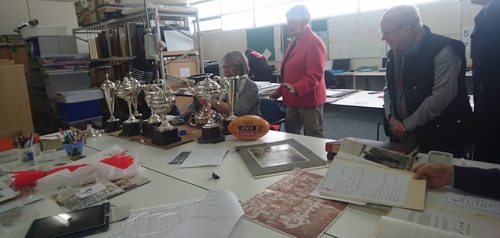
cleaning, sorting, cataloguing, researching, filing etc. – the life of a volunteer at the History Centre
SOOOOO much South Australian football history is being preserved by them, which is a good thing for social historians, sporting historians, and family historians. While the centre isn’t open for everyone to come and do their own research onsite, they can accept queries to check and see what records and/or artifacts they may have already indexed that relate to an individual. Their ultimate goal is to put details of their holdings online, so people anywhere can access it. But that takes time and money, but it’s a great goal, and I certainly hope it happens. In the meantime if you know of anyone who has South Australian football memorabilia, and isn’t sure what to do with it – send it to them as they will certainly give it a good home, and make sure it’s preserved.
You can get in touch with the SANFL History Centre through the SANFL website.
———————————-
DISPLAY/TALK
State Library’s White Gloves Tour (by the State Library of South Australia)
I’ll admit this dispaly/talk wasn’t quite what I expected, but Anthony and Mark, archivists from the State Library of South Australia did a great job of delving into the library’s collection and essentially gave the audience a show and tell of a few of their treasures. Some items thousands of years old, others hundreds, others only a few decades. From old books, to letters, to periodicals, to a clay tablet from the Middle East, even a corset and a Blinky Bill tambourine – each has a story as why and how the State Library ended up with them. It was a great talk, and certainly a eye-opener .
———————————-
NON-HISTORY MONTH EVENT
Visit the Mortlock Library
How anyone can go to the State Library of South Australia, and not pop next door to the Mortlock Library beats me. I always pay this beautiful building a visit when I’m nearby, and it still blows me away by it’s awesomeness, and it’s history. It’s so easy to see why the Mortlock library is on numerous Top Libraries of the World to Visit lists.
———————————-
TOUR
City of Adelaide Clipper Ship (by the Clipper Ship “City of Adelaide”)
This was actually an unplanned bonus event as I’d headed to Port Adelaide for another event, but was early, so killed some time by checking out the City of Adelaide Clipper Ship nearby. What I also didn’t know until then, was that you can actually go in it, and tour around. So that’s exactly what I did.
The ‘City of Adelaide’ is the world’s oldest surviving clipper ship, it is also the only surviving passenger sailing ship. From 1864-1887 it was been used to take emigrants from London to Adelaide. As a result, as many as 500,000 South Australia’s can trace their roots to immigrants having arrived on this ship.
Later the City of Adelaide was used to transport coal and timber, and as a hospital ship. In 1922 it was used by the Royal Navy and Royal Naval Volunteer Reserve, and they renamed it to HMS Carrick. That lasted until 1948 when it was decommissioned. Once the war was finished the ship was scheduled for breaking up, but fortuntately that didn’t happen but was sent to Scotland. From there, talks with parties in both Australia and Scotland somehow managed to the the old girl home to Adelaide. And thanks to the incredible efforts of volunteers, as well as all who give them donations – they are dedicated to restoring and preserving this historic vessel.
If you’re ever at Port Adelaide and get a chance to visit this ship, do it, it’s incredible, and my pics simply don’t do it justice.
———————————-
DISPLAY
Visionaries and Achievers of Port Adelaide Connected to Woodville Since 1836 (by the Historical Society of Woodville)
One of the ‘achievers’ that the Society was highlighting was Richard Holland, and as he’s a brother-in-law to my great great grandma, I thought it would be worth checking out. However I didn’t really get to see the exhibition as I spent the time there actually chatting to one of the committee members about Richard Holland, and as she’s related to him too she brought photos to show me and the Holland family history book as well. So there went a few hours of chatting, and learning about their life.
———————————-
TALK
AdeLOL: A live Comedy Podcast (by AdeLOL)
This was one of two events that the guys (Dan and Tom) from AdeLOL who are the creators of the Heaps Good History Podcast were involved in for History Month. Held at the Little Bang Brewing Company in Stepney, I went along to hear what their “live podcast” was like. With their casual nature mixed in with banter and tidbits of history, it was such an interesting was to learn about history.
The topic for this session focussed on the suburb of Stepney in Adelaide, since that’s where the Brewing Company was. So the boys did their homework by reading up looked up the history, found some very cool stories about characters in the area and told it in their own unique way.
One thing they mentioned which sticks with me was that while Stepney now is known as a inner suburb of Adelaide, and is an upper class area, it wasn’t always that way. In fact it was modelled on Stepney in the London – which was basically a slum area. And supposedly that’s why the suburb has narrow streets and bad drainage.
The AdeLOL guys do regular podcasts on all sorts of South Australian history related topics. So just head on over to their website to check them all out, and have fun learning about South Australia’s history: https://adelol.podbean.com/
———————————-
TALK
Alive in the Archives: Kittens, Camels and Decoy Sheep (by the National Archives of Australia & State Records of South Australia)
The title of this one hooked me in, and it was as interesting as it sounds. Archivists from both the National Archives of Australia (SA) and State Records of South Australia went through their collections, and highlighted some of the images and records relating to animals.
From South Australia’s emblem,the piping shrike magpie, to war dogs, to police horses and camels. I found out that the South Australia Railways Dept used horses as well as “decoy sheep”, and that there is such a thing a “horse cards”, so you can see a horses’ history. Pidgeons were used as a means of communication with remote lighthouse keepers, and while the practice didn’t last, it did save at least one lighthouse keeper’s life, by getting word to the mainland to get a doctor to come and help.
It was yet another great and enlightening talk, and the big crowd learnt a lot.
———————————-
TALK
Kingston’s 1842 Monument to Colonel Light (by Artlab)
I’ll admit that I knew nothing about Kingston’s Monument prior to this talk (see the lerning never ends). But Justin from Artlab Australia gave a great talk on the part that both Colonel William Light and Sir George Strickland Kingston played in founding Adelaide. Light died in 1839, just 2 years after South Australia began colonisation. And as a tribute the public decided there should be a memorial made to him. Strickland volunteered his services and in 1842 the 45 foot (13.7m) high gothic monument towered over Adelaide. However due to poor quality stone, it crumbled and was eventually demolished some 60 years later.
This long-forgotten monument has now been resurrected digitally from photographs, and recreated in wood at a 1/10 scale model.
It is proposed “that the monument be re-built for the 2036 South Australia Bicentennary, and that it should be rededicated to the traditional custodians of the land, the Kaurna people, and the vision of the Old Colonists of the South Australian Association and the early pioneering settlers”. Personally I think this is a fabulous idea, and I hope it happens. It is a spectacular monument, and the original owners, and early settlers should be remembered.
———————————-
TOUR
Preserving Our Story: Lutheran Archives Behind the Scenes Tour (by the Lutheran Archives)
This was another tour I was eager to do. Having some German heritage in Australia, I know that this place that some records relating to my reli’s, but I haven’t had (or sadly made) the time to go visit them to do the research yet. So instead I did the tour to get an idea of what they hold.
Anyone who is a researcher would love seeing rooms full of compactus’ filled with records, books and artifacts, and that’s what the Lutheran Archives is like. They are the national archive for all things Lutheran related, and hold I don’t know how many metres of records, but it is significant, as the building is two storey.
From original church record books, to old German family bibles, to furniture that has significance to a German person or family, to shelves full of German related family histories, and tens of thousands of photographs … they have it all.
For more on the Lutheran Archives, or if you have a query for them, please visit their website.
———————————-
So that was my South Australian History Festival month. And fitting it in with life and everything else going on, it really was busy, busy for me!!
Anyway a huge thankyou to the History Trust of SA team who are behind South Australia’s History Festival, and of course the organisations who put the events on. It’s been an awesome month, and I have learnt a lot. And look forward to more …
But now we wait until August for National Family History Month, and we get to take part in events that are on then. I’m actually hoping some events that were on in May are going to be repeated, because with over 700 events on, and limited time, you simply can’t get to everything you’d like to. Anyway after August, the countdown will then be on for South Australia’s History Festival 2020!
The Train, the Explosion, and the Parliamentarian
The year was 1890, and …
“a most painful accident, of a character unparalleled in the annals of railway accidents in this colony, if not in Australasia, occurred on the Northern line on Friday evening, Jan. 17. The terrible calamity which befel … was so sudden, and its effects so appalling, that the harrowing details were listened to with bated breath and unconcealed sorrow.”
That’s how the long article about the tragic death of well-known South Australian businessman and parliamentarian, Honorable James Garden Ramsay, M.L.C. begins.
James Ramsay was born in Edinburgh, Scotland in 1827, did an apprenticeship as an engineer at the St Rollox Ironworks in Glasgow, and then emigrated to South Australia in 1852. He established an agricultural implement and machine manufacturing plant at Mount Barker, which represented the starting point of what later grew into the largest business of its kind in the colony. Apart from his Mount Barker business, he opened up agricultural implement manufacturing businesses in Adelaide, Clare and Laura as there was a huge demand.
Anyway J.G. Ramsay’s interest in politics began in the 1860s, and in 1870 he entered Parliament for Mount Barker, and from then until his death he held various parliamentary positions. The article says …“Altogether he served over five years as a Minister of the Crown. As leader of the Legislative Council he exhibited considerable tact and ability, and possessing the confidence of his fellow members, he was eminently successful in conducting the business”.
Which then brings us back to Friday evening, 17 January 1890 when James Ramsay is travelling back to Adelaide, from Saddleworth, South Australia by train. Travelling with Mr Rounsvell (a fellow M.P.), who by the time the train reached Riverton left to go to the smoking carriage, after which Mr Ramsay fell asleep while reading the newspaper. The following is the report of what happened …
“The Hon. gentleman was left by himself, and he laid down on the seat, and after reading a newspaper fell asleep. Just before the train reached Stockport he was awakened by a loud report, which proved to be the bursting of the lamp, and in an instant he was all ablaze, the burning oil falling all over him. He tried to open the door of the carriage, but was unsuccessful, and it was not until the train arrived at Stockport that he was enabled to roll on to the ground in a terrible condition. Assistance was at once procured, and he was wrapped in a rug and some bags, the flames in this way being extinguished. It was then seen that Mr. Ramsay was in a very serious condition, and that he was suffering the most acute pain. Telegrams were dispatched to Gawler and Adelaide, and at the former place the sufferer was met by Dr. Popham, who advised his being conveyed on to Adelaide.”
Badly burnt, Mr Ramsay was met at the Adelaide train station by Dr Marten, his brother John Ramsay and a waiting ambulance.
“Dr Marten found him very much collapsed, suffering greatly from the shock. He was lying on the floor of the carriage, partially covered with rags, most of his clothes being burnt off. He was at once removed int he ambulance van the Patients’ Home on South-terrace, where his wounds were dressed by Dr. Marten. He still retained consciousness, notwithstanding the effects of the shock. The extent of the injuries were then ascertained, and the sufferings of the unfortunate gentleman must have been intense. He was burnt from head to foot, the skin being taken off from all parts with the exception of the head. His beard was completely destroyed, and his eyebrows and eyelashes singed. Te skin came off the left hand like a glove, the left having suffered more than the right, the burns extending up to the armpit. The injuries were greatest about the abdomen and the arms, though the whole body was badly burnt.”
His wife who was at Mount Barker at the time, was advised of the accident on Friday evening, and made her way to the city, reaching Adelaide by 5am on Saturday morning. However, sadly due to the severity of the burns, James Garden Ramsay passed away on Saturday 18 January 1890, at about 10.30am.
He was a migrant who certainly left his mark in South Australia in business, politics and the local community where he lived. This shows simply by the number of articles written in newspapers all around Australia about his death (over 8500. Yes, seriously!!).
Thanks to Trove, you can read the FULL article about the accident from the report in the Adelaide Observer, Saturday 25 January 1890, click here, and for further information, click on the links below.
More information:
James Garden Ramsay on Wikipedia
Read the Adelaide Observer article in full here
You can find details of the inquest here
His obituary is printed in the South Australian Register here
And for odles more articles on his death click here
NFHM Blog Challenge Week 1: National
August is National Family History Month, and fellow geneablogger, Alex issued the NFHM Blog Challenge.
Using a theme of authors from the past, Alex posed an interesting challenge. It’s a great challenge, don’t get me wrong, but after thinking about it for weeks, nothing was jumping out at me, so I’ve decided to write my NFHM posts using a different theme.
Week 1: something NATIONAL related
Week 2: something FAMILY related
Week 3: something HISTORY related
Week 4: someing MONTH related
———————————————
As I’m already a little behind, I’ll get going with Week 1 now. And for this I’ve decided to take a look at Australia’s national anthem, “Advance Australia Fair“.
So just how, when, and why did this song become the national anthem? Let’s find out.
So let’s start at the beginning. Peter Dodds McCormick is the man behind the anthem. Born in Scotland in c1834, he emigrated to Australia in 1855. The son of a seaman, Peter himself was a teacher for most of his life, and he was the man who composed “Advanced Australia Fair”, and used the pen-name Amicus. Written and first performed in the late 1870s, it went on to become a popular patriotic song.
In a letter dated 1 August 1913, McCormick described the circumstances that inspired him to write “Advance Australia Fair”:
One night I attended a great concert in the Exhibition Building, when all the National Anthems of the world were to be sung by a large choir with band accompaniment. This was very nicely done, but I felt very aggravated that there was not one note for Australia. On the way home in a bus, I concocted the first verse of my song & when I got home I set it to music. I first wrote it in the Tonic Sol-fa notation, then transcribed it into the Old Notation, & I tried it over on an instrument next morning, & found it correct. Strange to say there has not been a note of it altered since. Some alteration has been made in the wording, but the sense is the same. It seemed to me to be like an inspiration, & I wrote the words & music with the greatest ease.
While “Advance Australia Fair” was sung by a choir of around 10,000 at the inauguration of the Commonwealth of Australia on 1 January 1901, it didn’t actually get “official” national anthem status until 1984.
Up until the mid-1970s Australia’s national anthem was actually “God Save the Queen”. And it was in this era that government decided the people should have their say on what anthem they’d like, and actually held a Referendum to decide. Voters were given a choice of four songs:
– Advance Australia Fair
– The Song of Australia
– Waltzing Matilda
– God Save the Queen
You can see the state-by-state results of this vote here, and it was as a result of this vote that Advance Australia Fair became Australia’s new national anthem in 1984.
You can tell by this vote, that “God Save the Queen” really wasn’t a favourite. But I think it hadn’t been for a while, as browsing on Trove there’s numerous references to “national song” competitions over the years, but for whatever reason nothing became official until the Referendum.
And while these days many Australians believe that Advance Australia Fair is rather boring as an anthem, you’ve got to agree that it sure is better than God Save the Queen.

